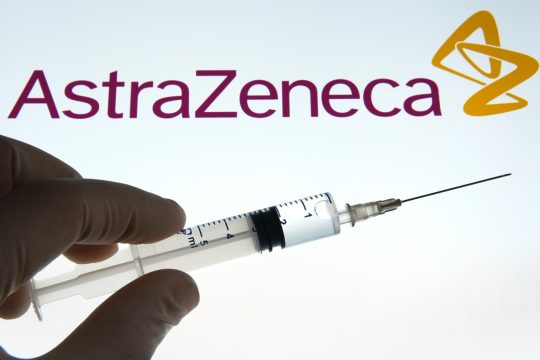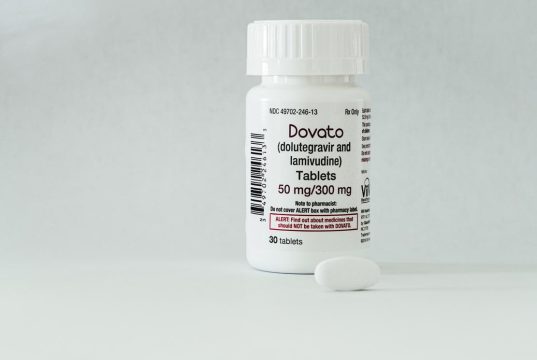Advertisment
EASL 2012 Report – EMERGE: Efficacy and safety in HCV of investigative pegylated interferon lambda-1a compared to standard interferon therapy
by Bruce Sylvester – Researchers report that patients with genotype 2 or 3 hepatitis C virus (HCV) treated with investigative pegylated interferon lambda-1a (peg-IFN-lambda 1a, Bristol-Myers Squibb) in combination with ribavirin have achieved a 75% sustained virologic response at 24 weeks post-treatment.
The findings come from the Phase II EMERGE trial.
They also reported a lower rate of flu-like and musculoskeletal symptoms in the investigative arm compared to those using standard Pegasys (pegylated interferon alfa-2a, Genentech), as well as lower rates of anemia and decreases in white blood cell and platelet counts.
EMERGE Investigators enrolled 526 treatment-naive subjects diagnosed with genotypes 1, 2, 3 and 4 HCV.
Stefan Zeuzem, MD, Professor of Medicine and Chief of the Department of Medicine at the J.W. Goethe University Hospital in Frankfurt, Germany reported on 118 patients with genotype 2 or 3 HCV infection treated with either weekly Pegasys injections or one of three weekly doses of peg-IFN-lambda (240, 180 or 120 micrograms), in combination with ribavirin and for 24 weeks.
SVR 24 results for genotype 1 and 4 subjects undergoing 48 weeks of treatment will be reported at a later date.
Subjects in the Pegasys group achieved an SVR 24 rate of 53.3%. Those in the 250 microgram peg-IFN-lambda group achieved a 60% SVR 24 rate. Those in the 120 microgram group achieved a 65.5% SVR 24 rate. Subjects in the 180 microgram group achieved a 75.9% SVR 24 rate.
Dr. Zeuzem said that the 180 microgram dose of peg-IFN-lambda will be used in Phase III studies.
Serious side effects and other adverse events were similar in all arms, up to week 24 after ending therapy.
But flu-like symptoms were reported in 17.2% to 23.3% of subjects in the peg-IFN-lambda groups, and by 40% of Pegasys subjects.
Musculoskeletal symptoms were reported by 16.7% to 27.6% percent of peg-IFN-lambda subjects, while such symptoms were reported by 63.3% of Pegasys subjects.
Dr. Zeuzem noted that 6.9% of the 180 microgram peg-IFN-lambda subjects required interferon dose reduction due to side effects, compared with 26.7% of the Pegasys subjects. And ribavirin dosing was reduced in 6.9% percent of those in the 180 microgram peg-IFN-lambda group, compared with 43.3% in the Pegasys group.
Also, 23.3% of the Pegasys group reduced their ribavirin dose because of anemia, compared with none in the 180 microgram peg-IFN-lambda group.
Dr. Zeuzem concluded, “Pegylated interferon lambda-1a was associated with a comparable sustained virologic response 24 rate in patients with HCV genotype 2, 3 with fewer musculoskeletal and flu-like symptoms, less hematologic toxicity and fewer peg-interferon or ribaviran dose modifications versus Pegasys ribaviran.”
Bristol-Meyers Squibb supported the study.





